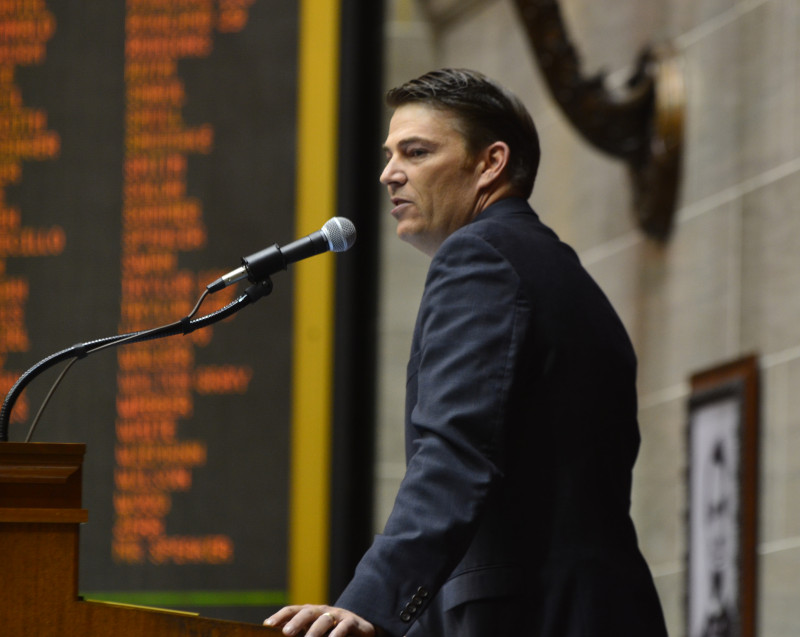JEFFERSON CITY, Mo. – A union-opposed “paycheck protection” bill, authored by Rep. Holly Rehder, R-Sikeston, earned the most votes it ever has in the Missouri House Thursday – earning enough support to reach a veto-proof majority.
Rehder believes the measure will prevent money paid by union members to go towards political advocacy with which they do not approve.
“Oftentimes public employees are forced to navigate bureaucratic roadblocks if they decide their union leaders are pursuing agendas they do not support, or if they feel they are not providing a valuable service,” Rehder said in a release. “Paycheck protection simply ensures the hard-earned dollars of these workers are in their control, and that the union representative isn’t guaranteed a member.”
While anti-union right-to-work measures have failed to hit such a mark in the past, the paycheck protection bill, which prohibits unions from taking a small portion of wages directly from the paychecks of from state-employed union members. Fire fighters and police unions are exempt from the law.
Speaker Todd Richardson, R-Poplar Bluff, has pushed for like measures in the past, and he was understandably enthused about hitting that veto-proof mark, calling it “historic.”
“We moved forward with a substantive, meaningful compromise on labor reform with a veto-proof majority,” Richardson said. “I think that’s a credit to the courage and the work of our majority.”
Americans for Prosperity (AFP) Missouri Deputy State Director, Rachel Payton, also called it a victory for public-sector workers.
“Today there is hope for bringing fairness back to Missouri,” she said. “Our public workers will finally be given a yearly choice to decide whether or not to join a public sector union with a simple signature card or electronic opt-in.
Reps. Anne Zerr and Robert Cornejo were the two votes that made the difference. Cornejo said that the perfection period yesterday gave him a chance to reconsider the bill, saying that “some of the things that were discussed on the House floor, some of the amendments that were added increased transparency, updated it along the lines of allowing email communications, rather than just allowing physically running around getting signatures” led him to change his vote from “no” to “aye.”

He also dismissed polls of his district given to him by both labor organizations and pro-business groups like AFP and instead asked them himself.
“When I knew this bill was coming up, I had the opportunity to survey and poll my district and see exactly what their thoughts were,” Cornejo said. “They came out in support of it.”
Despite the switch when the governor likely vetoes the bill, his vote could possibly change again before veto session, and given the razor-thin margin of the bill’s veto-proof majority, it could become a contested topic during veto session.
“There’s definitely time for more conversation to be had,” Cornejo said. “When it goes over to the Senate, they’ll likely be amendments added on over there. I think the discussions going to evolve, and we’ll see where we’re at in September.”








